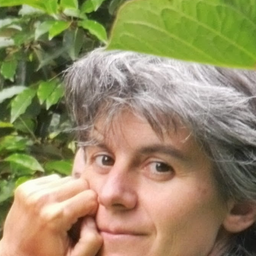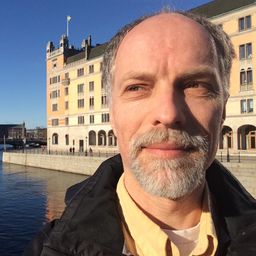Are Contemporary Processes of Migration Changing the Authorised Heritage Discourse?
My Session Status
In the past decades museums and heritage places all over the world have begun to adapt to this challenging situation. From enlightened and exclusive institutions, promoting one version of the past and national identity, museums have had to transform themselves to remain relevant in our fast changing and diverse world. Equally, some countries are increasingly identifying and protecting heritage places, routes or landscapes that are significant to people affected by mobility such as migrants/diaspora, ex-colony citizens, modern and contemporary slaves, etc. These changes include giving greater access to collections and exhibition spaces, promoting multi-vocality in the interpretation of collections, encouraging migrants’ involvement in exhibitions through co-curation, or developing participatory methodologies among local and/or excluded communities for the definition of the significance of heritage places.
This session invites papers that discuss, analyze and evaluate approaches, methodologies and the impact of programmes of museums and heritage places involving people in cultural transitions (including migrants, refugees, cross-cultural people). Basically, we are interested in investigating what happens to heritage when people’s identities are in transition due to mobility. Issues which the session will explore include:
• Specific museum programmes developed for migrant communities, such as language learning programmes, well-being sessions, employment schemes for migrants, etc.
• Migrants’ critical views of museum’s programmes and collections.
• Definition of new heritage places and museums from a migrant perspective and approach (i.e. multi-vocality and participatory policies).
• Redefining the diverse significance and uses of mainstream heritage places in the context of globalized, dynamic and fluid cultures (i.e., the heritage of emotions applied to migration).
Elementy podrzędne
Universal museums claim to be custodians of cultural heritage for the benefit of humanity and they thus have an obligation to address the voices of all stakeholders in relation to the objects that are in the possession of the museums. This paper will argue that if museum curators aim to achieve inclusivity, they should first address the phenomenon of epistemic injustice. Given that current accounts of archaeological ethics advocate the ethical significance of inclusivity, my concern is to ...
Migration is no longer, in the phrase coined by French historian Gérard Noiriel, a “non lieu de mémoire.” Public sites increasingly harbour the memories of migrants in their diversity and specificity, making audible and visible versions of the past that had been occluded or simply neglected. By remembering and redeeming the memories of immigrants long forgotten and suppressed (un “oubli volontaire” – a voluntary oversight), you empower them. If the integration of migration history...
This paper will consider how the notions and definitions of heritage (both tangible and intangible) are changing, due to the recent and on-going forced migrations from Africa and the Middle East to Europe. The recent “refugee crisis” (brought to national and international attention via media reports) has highlighted not only the extent and depth of a vast humanitarian crisis but also a complex socio-cultural phenomenon that, without doubt, will have an impact on the way cultural heritage i...
Modern tradition conceptualizes spaces and territories as equivalent to state-nations and consequently frames cultural heritage in national heritage terms. In a self-reinforced process, heritage then has been defined as that occurring in the territory defined by the nation-state. Accordingly, cultural heritage has been used either to naturalize nation-state ideologies and borders, or even to support multicultural approaches to heritages in melting-pot, post-colonial, assimilating, and sala...
This paper is based on a recent study by Abdi-Noor Mohamed on tangible and intangible Somali cultural heritage in Sweden. Since the 1990s, about 45,000 refugees have arrived in Sweden as a result of the civil war in Somalia. In 2014, 1.6 million of Sweden’s population were born abroad, equivalent to over 16% of the total population (with this proportion likely growing further in the coming years). This study draws mainly on an extensive digital documentation of stories of Somali immigrants...
In line with the New Museology approach, museums all over the world have engaged with issues of social justice for at least the past thirty years. This has taken the form, mainly, of projects representing and interpreting (im)migrants’ histories, heritage, and identities in the space of the museum. In recent years, a number of museums have also offered (im)migrants opportunities to learn the language of the host country, as well as acquire employment skills. Little comprehensive a...
In an effort to begin exploring the intersection of diaspora heritage studies and social network analysis, this paper will explore the functionality of a transnational heritage network in which both institutions and individuals from the Welsh homeland, as well as the Welsh Patagonian diaspora, participate to preserve Welsh heritage. Currently, there is a gap in the literature on diaspora heritage in regard to the complex heritage networks diasporas and their homelands construct in order to...




